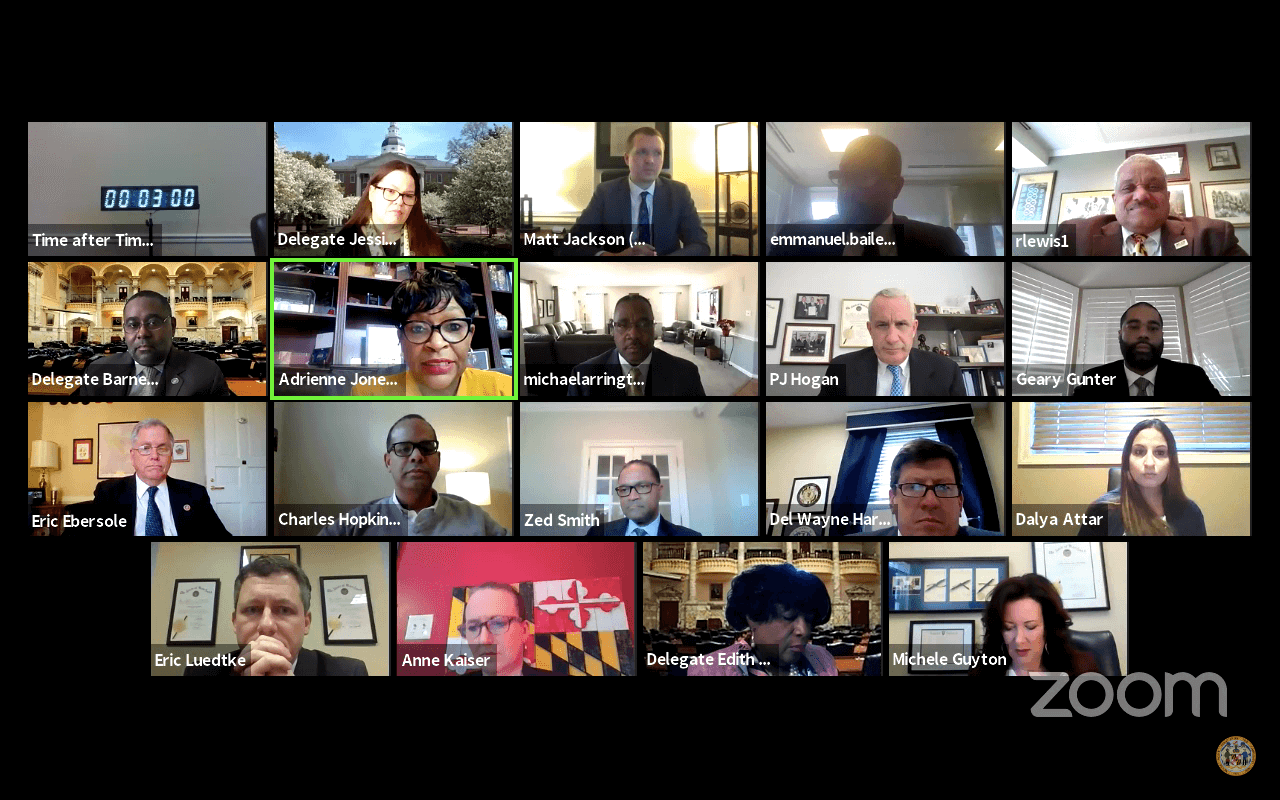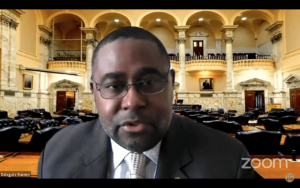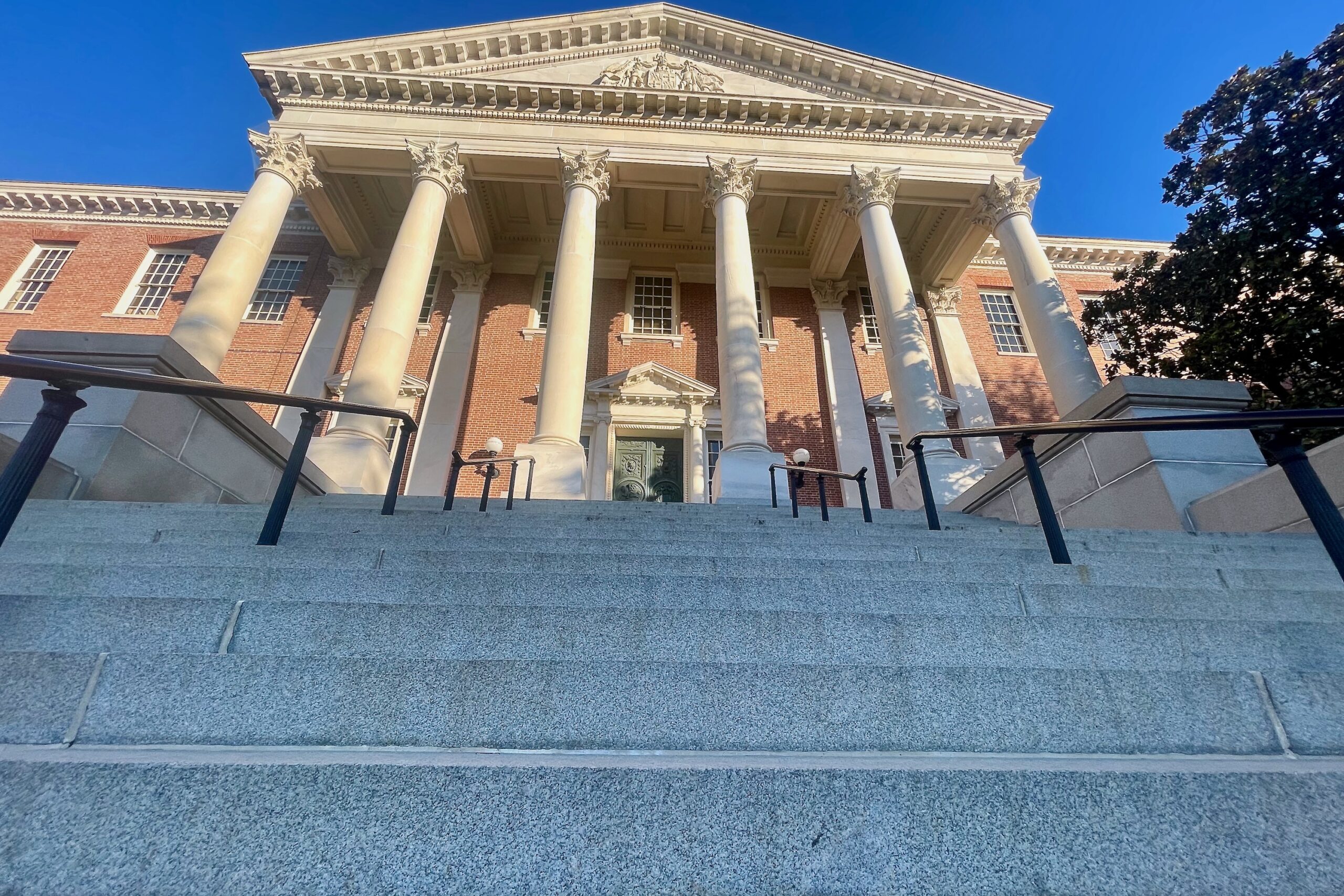Gaming Companies Make Pitch for More Mobile Sports Betting Licenses

Gaming companies — and those hoping to climb aboard the sports gambling bandwagon — on Thursday urged a House panel to greatly expand the number of licenses for mobile-device-based betting.
They said states that have leapt ahead of Maryland in the sports betting arena have done so, in part, because they allowed more players onto the field.
Jason Tosches, director of government affairs for TheScore, a Canadian sports betting app that launched in 2007, urged the House Ways and Means Committee to amend House Bill 940 to allow for 24 mobile-only sports betting licenses. Currently the bill allows 10.
“We believe this amendment would offer the greatest amount of competition among operators, produce the maximum market size and state revenue, and enhance consumer protections,” he said.
He pointed to Pennsylvania and to New Jersey, the state that has the most established sports wagering industry outside Nevada. In both states, he said, 90% of betting activity that occurs, takes place online, as people place bets on their phones.
“By creating competition, you force operators to continually innovate, offer better pricing and promotions, and spend on marketing, all of which is designed to draw customers from the black market,” Tosches added. “By doing that, it will continually grow the state’s regulated market, and the state’s portion of its tax revenue will grow with it.”
Lawmakers are not agnostic on the issue of revenue.
Lawmakers put sports gambling on the ballot in 2020 to raise money to fund the Kirwan Commission’s educational reform recommendations. That referendum passed by a 2-to-1 margin and the legislature is now trying to determine how to implement sports betting.
House Speaker Adrienne A. Jones (D-Baltimore County) is the lead sponsor of HB 940, a reflection of the issue’s importance.
Her bill would create eight betting licenses for casinos or horse racing facilities, five on-site betting licenses for entities that are not involved in gaming or racing, and ten licenses for mobile apps.
Companies that win a license would get to keep 85% of their revenue in most cases. The rest would go to the state’s Blueprint for Maryland’s Future Fund, to benefit education.
The legislation also seeks to “maximize” the ability of minority- and women-owned businesses to win a sports wagering license.
“Black Caucus members still remember minority businesses being completely shut out, a few years ago, when the state awarded 15 initial licenses in the medical cannabis industry,” said Del. Darryl Barnes (D-Prince George’s), the caucus’ chairman.

Del. Darryl Barnes (D-Prince George’s)
“Given this, it is our responsibility to ensure that we learn from those mistakes,” he added.
The state Senate has formed a Sports Betting Work Group, which is meeting weekly to discuss the issue. On Wednesday, the panel heard testimony from representatives of the Attorney General’s office on how to craft a licensing approach that favors minority- and women-owned businesses without running afoul of procurement law.
A disparity study determined that firms owned by women and people of color are at a disadvantage, an important predicate for legislation that could boost the use of preferential scoring in how licenses are awarded.
“I’m very committed to getting this operation up and running for the betterment of everyone,” said Del. Jason C. Buckel (R-Allegany). “My only concern is whatever we do, we want to make sure that it is not susceptible to a plethora of lawsuits that may or not be successful.”
“We’re already years behind some of our regional competitors,” he added.
The Speaker’s bill would establish the Sports Wagering Application Review Commission to handle weighing bids the state receives.
Aware of the legislature’s determination to have authentic minority ownership in sports betting, large firms that want in on the action are bringing on new partners from the minority business community.
But Michael Arrington, a lobbyist for Evergreen Information Technology, told the panel that that model doesn’t work.
“The idea of only casinos and race tracks and pro team sports partnering with minority investors will fail at this task,” he said. “Let’s make it happen in a better fashion this time.”
Arrington told lawmakers they should allow for small community-based venues “such as established bingo halls, sports bars and even lodges.”
Companies that want to compete for a license would have to pay an application fee to the State Lottery and Gaming Control Commission.
The fee would be $250,000 for a Class A license (casinos and race tracks), $50,000 for a Class B license (sports teams and others not involved in gaming), and $500,000 for a mobile sports wagering license.
Licenses would be good for five years. Companies that want to renew their license would pay a fee equal to 1% of the average of their annual gross sports wagering revenues for the preceding five years, minus proceeds distributed to the State.
The Senate does not have a sports betting bill.
The work group’s discussions are intended to help in formulating one, said Sen. Craig Zucker (D-Montgomery), the chief sponsor a measure last year.




 Creative Commons Attribution
Creative Commons Attribution